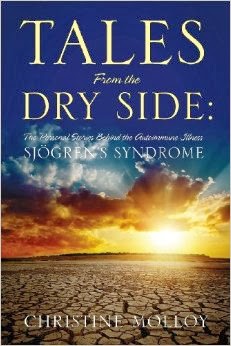It has taken me longer to write and post this blog entry than I anticipated. I have been having a lot of trouble the past few weeks with joint pain, mostly in my hands and feet, and it has made time on the keyboard more difficult than I would like. My rheumatologist wants me back on prednisone. I think it is the result of an unusual amount of stress, coupled with my diet being less than stellar (I tend to be a terrible eater when I am upset/stressed, depending on the severity of the situation), and the hormone changes from having my Mirena removed less than two weeks ago. I am giving myself a few days to try and get myself straightened out before jumping on the prednisone bandwagon.
Anyways, I got a call this week from my genetic counselor with my BRCA test results and they were negative! Waiting for the results for almost three weeks was even more difficult than I had imagined. Someone asked me this week why I thought that this particular medical issue was more difficult than so many of the other challenges I have faced medically. I really had to think long and hard about that…
I was able to figure out that it freaked me out so much for a variety of reasons. To start with, someone close to me got a very bad medical diagnosis twenty-four hours before I was BRCA tested. Also, I am a cancer survivor and anything cancer related to me has a tendency to freak me out a bit. Lastly, I KNEW that if I was BRCA positive, I would be going for surgery to have my ovaries removed and most likely, a bilateral mastectomy as well. I would not have had the testing done if I had not already thought that through and made those tentative decisions. So the idea of two major surgeries, in addition to my often precarious health status, panicked me. Just the blood clotting disorder itself was going to be a major issue. All very valid reasons to be concerned.
I am over-the-moon thrilled about this negative result, even if it does still leave some unanswered questions. My mother, who has had ovarian and breast cancer, was never BRCA tested (long story). Now if she is BRCA negative, or even if we don’t know her status, there is still a possibility that she is carrying a gene that contributed to her cancer that I was not tested for. The problem is, these non-BRCA genes are not as well understood and neither are the implications of them being positive. If my mother WAS BRCA positive, with me now being negative, then the story has ended. We would know that her cancer was caused my the BRCA gene and I no longer need to worry about this issue. Keep in mind that there still remains the possibility of her cancers NOT being genetically linked either.
Confusing as hell, isn’t it?
You should hear me trying to explain this to my mother!
I had this discussion with my mom and we decided that, especially now that I am negative, she will consider gene testing. My genetic counselor suggested that she explain everything to her doctor, and consider other gene testing besides BRCA depending on whether it is covered by her insurance and if she wants to do it. Typically, the person with cancer undergoes genetic testing first. We did things a bit backwards, but it is what worked at the time for the both of us. There is a big difference in my mother getting tested now, knowing that there is no way she passed this BRCA gene down to me.
She is going to follow-up with her doctor in the fall when she has another appointment, but for me, I am done with all of this for now. The genetic counselor I met with does not feel that there is a strong possibility for any of these other genes; at least that is the impression that I got and I am not willing to shell out $4000 or so (my $2500 BRCA test was covered by the lab) to find out about these other genes when they are so poorly understood, and when I don’t have all the information yet from my mother. I am still planning on following up with the oncologist because it has been pointed out to me that with my mom’s history and with my chest radiation history, more should be done with breast surveillance, especially in regards to breast MRIs. I will also discuss with him the value of having ultrasounds and blood tests (CA-125) done for ovarian cancer.
I have learned a lot from this entire process. While I was waiting for my BRCA results, I got connected online with some women who are BRCA positive, and some women who have had the two surgeries. They were a wealth of information and I am in awe of the strength of the human spirit after what all these women are going through and will continue to go through.
For me, I am grateful that even though I am on a difficult medical journey every single day, that this piece will not be a part of that journey. My husband and I had not even made any plans for a few things we wanted to do this year and next, until we knew what the outcome was going to be. I now don’t have to worry about not being able to work my new job, once school restarts in the fall. I can breathe a little easier and be more appreciative for this blessing that I have been given.

